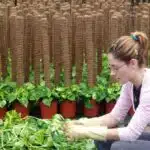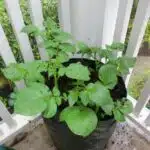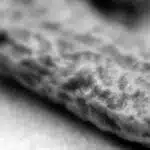Jerusalem artichokes, also known as sunroots or sunchokes, are a delicious and versatile root vegetable that can be grown in a variety of climates. These plants are native to North America and have been cultivated for centuries by Indigenous peoples for their medicinal properties and food value. Today, Jerusalem artichokes are gaining popularity among home gardeners and chefs alike for their unique flavor and health benefits.
Growing Jerusalem artichokes requires some knowledge of the plant’s growing requirements and a bit of patience. These tubers are hardy perennials that can survive in a range of soil types, though they prefer well-draining soil with plenty of organic matter. In this article, we will explore the various aspects of growing Jerusalem artichokes, from preparing the soil to harvesting the tubers. Whether you’re an experienced gardener looking to expand your crop selection or a beginner interested in trying something new, this guide will provide you with all the information you need to successfully grow your own Jerusalem artichokes.
Understanding The Benefits Of Growing Jerusalem Artichokes
Jerusalem artichokes are a vegetable crop that is gaining popularity due to their unique taste and numerous health benefits. These perennial plants belong to the sunflower family, and they produce edible tubers that resemble ginger root. The benefits of growing Jerusalem artichokes are vast, ranging from their nutritional value to their ability to improve soil quality.
One of the most significant benefits of growing Jerusalem artichokes is their high nutritional value. These tubers are a rich source of inulin, a type of dietary fiber that promotes digestive health by feeding beneficial gut bacteria. In addition, they contain vitamins B1, B2, and C, as well as minerals such as potassium, iron, and phosphorus. This nutrient-dense vegetable is an excellent addition to any diet.
Another benefit of growing Jerusalem artichokes is their ability to improve soil quality. These plants have deep roots that penetrate the soil and help break up compacted earth. They also have the ability to absorb excess nutrients from the soil, making them ideal for planting in areas with poor soil quality or nutrient depletion.
To fully reap the benefits of growing Jerusalem artichokes, it’s important to choose the best planting location for these crops. Taking into account factors such as sunlight exposure and soil conditions can make all the difference in achieving a successful harvest.
Choosing The Best Planting Location
Jerusalem artichokes are easy to grow and can thrive in a variety of soil types. However, to ensure the best possible harvest, it is important to choose an ideal location for planting. The first consideration when selecting a location is soil type. Jerusalem artichokes do well in moist but well-draining soil that is rich in organic matter. Sandy or loamy soils are preferred over heavy clay soils, as they allow for better root development and water absorption.
The ideal soil pH for Jerusalem artichokes is between 5.8 and 6.5. If your soil is too acidic, you can add lime to raise the pH level. On the other hand, if your soil is too alkaline, you can add sulfur to lower the pH level. It is also important to avoid areas with compacted soil, as this can hinder root growth and lead to stunted plants.
In addition to selecting the right type of soil, it is important to choose a location that receives plenty of sunlight throughout the day. Jerusalem artichokes require at least six hours of direct sunlight each day to grow properly. A south-facing slope or open field with no obstructions such as buildings or trees will provide ample sunlight for optimal growth and yield. Once you have identified an ideal location for growing Jerusalem artichokes, the next step is preparing the soil for planting.
Preparing The Soil For Planting
How do we prepare the soil for planting Jerusalem Artichokes? This is a critical step in ensuring a healthy and bountiful harvest. Before planting, it’s important to test your soil. Soil testing will help you determine if your soil is deficient in any nutrients or has an imbalance of pH levels. Once you have an understanding of your soil’s condition, you can make informed decisions on how to adjust it.
Composting techniques are an excellent way to improve soil quality. Compost helps add organic matter to the soil and provides essential nutrients that plants need to thrive. It also improves soil structure, allowing for proper water drainage and aeration. You can create your own compost by collecting food scraps, yard waste, and other organic materials like leaves and grass clippings.
Before planting Jerusalem Artichokes, it’s crucial to amend your soil with compost. Spread a thick layer of compost over the planting area and work it into the top few inches of soil using a garden fork or tiller. This will ensure that the nutrients from the compost are evenly distributed throughout the soil. By testing your soil and incorporating composting techniques, you’ll be setting yourself up for success when growing Jerusalem Artichokes.
As we have learned about preparing our soil for planting Jerusalem Artichokes through proper testing and the use of composting techniques, we can now move onto selecting the right variety of Jerusalem Artichokes for our garden or farm.
Selecting The Right Variety Of Jerusalem Artichokes
After preparing the soil for planting, it is important to select the right variety of Jerusalem artichokes. There are several varieties available, each with their own unique characteristics. It is important to choose a variety that will grow well in your specific area and meet your needs as a gardener.
When selecting a variety of Jerusalem artichokes, consider factors such as growth requirements and yield potential. Some varieties may require more water or sunlight than others, while some may produce larger tubers or grow taller stalks. It is also important to consider the flavor and texture of the tubers produced by each variety.
Once you have selected the right variety of Jerusalem artichokes, it is time to focus on their growth requirements. These plants prefer full sun and well-drained soil, but they can tolerate partial shade and heavier soils if necessary. They also require regular watering throughout the growing season to ensure proper tuber development. With proper care and attention, your Jerusalem artichokes will thrive and provide you with a bountiful harvest come fall.
As we move into planting Jerusalem artichokes, it is important to keep in mind the preparation that goes into creating an optimal environment for their growth. Proper soil preparation and variety selection are crucial steps in ensuring success with this crop. Now that we have established these foundational elements, let us delve into the specifics of planting these unique vegetables.
Planting Jerusalem Artichokes
When planting Jerusalem artichokes, it is important to consider the planting depth and spacing requirements. The ideal planting depth for Jerusalem artichoke tubers is approximately 3-4 inches deep. This depth allows the tubers to establish a strong root system while still being able to emerge from the soil.
As for spacing requirements, Jerusalem artichokes should be planted about 12-18 inches apart in rows that are spaced about 3 feet apart. This allows the plants to have enough room to grow and spread out, as they can reach heights of up to 10 feet tall. It also ensures that each plant has access to adequate sunlight and nutrients.
By following these planting guidelines, you can ensure that your Jerusalem artichokes will grow healthy and strong. In the next section, we will discuss how to provide adequate water and nutrients for your plants so that they can continue to thrive throughout their growing season.
Providing Adequate Water And Nutrients
- Jerusalem artichokes require plenty of water for optimal growth and should be watered at least once a week.
- To ensure optimal nutrition, a balanced fertilizer should be applied to the soil prior to planting.
- Jerusalem artichokes require adequate nutrients such as nitrogen, phosphorus and potassium to thrive.
- Organic fertilizers such as compost and manure are recommended for Jerusalem artichokes as they provide the necessary nutrients for the plants to thrive.
- Slow-release fertilizers should also be used to provide a steady supply of nutrients throughout the growing season.
- Liquid fertilizers are also an option and can be used to supplement other fertilizers if necessary.
Watering Jerusalem Artichokes
Jerusalem artichokes, also known as sunchoke, are a hardy and prolific crop that requires minimal attention. However, providing adequate water and nutrients is essential to ensure a bountiful harvest. Watering frequency is one of the most critical aspects of growing Jerusalem artichokes. The plants require regular watering to maintain soil moisture retention, which helps them thrive in low-water conditions.
To ensure optimal growth, it is recommended to water Jerusalem artichokes deeply once a week during dry periods. The frequency may vary depending on the weather and soil type; sandy soils tend to drain faster, requiring more frequent watering than clay soils. Overwatering can cause root rot and other fungal diseases, so it’s crucial not to saturate the soil fully. One way to determine whether the plant needs watering is by checking the top 2-3 inches of soil for dryness.
Another vital aspect of watering Jerusalem artichokes is ensuring that the roots receive enough moisture without flooding them. Mulching around the plants can help retain soil moisture and reduce weed growth, which competes with the plants for nutrients and water. It’s also important to avoid getting water on the leaves since this can promote fungal infections. By paying close attention to watering frequency and soil moisture retention, gardeners can grow healthy and productive Jerusalem artichoke crops.
In conclusion, watering Jerusalem artichokes appropriately is essential for their optimal growth and development. Gardeners should aim at providing enough water while avoiding oversaturation or flooding of the roots. By adhering to these guidelines and monitoring soil moisture retention regularly, gardeners can grow strong and healthy Jerusalem articho
Nutrient Requirements
In addition to providing adequate water, Jerusalem artichokes also require optimal fertilization to grow and develop properly. These plants are heavy feeders and need a constant supply of nutrients for optimal growth. It is essential to understand their nutrient requirements to ensure that the plant receives an appropriate balance of macro and micronutrients.
Optimal fertilization is vital in achieving high yields, healthy crops, and quality tubers. Gardeners can use composting techniques to provide these nutrients naturally. Composting provides a slow-release source of nutrients, which is ideal for Jerusalem artichokes since they require a steady supply over several months. Using compost as a soil amendment can improve soil fertility and structure, increase beneficial microorganisms’ populations, and promote root development.
To achieve the best results when using compost, gardeners should apply it before planting or during the growing season as top dressing around the base of the plants. It’s important to note that excessive amounts of nitrogen can result in excessively tall plants with stunted tuber development. Therefore, gardeners should use compost in moderation and avoid over-application. By following these guidelines on optimal fertilization through composting techniques, gardeners can achieve a bountiful harvest of Jerusalem artichokes with high nutritional value without relying on synthetic fertilizers or damaging the environment.
Fertilizer Types
To provide adequate water and nutrients for Jerusalem artichokes, gardeners must understand the different types of fertilizers available. The two primary categories are organic and synthetic fertilizers. Organic fertilizers come from natural sources like compost, manure, or bone meal, while synthetic fertilizers are artificially made through chemical processes. Organic fertilizers provide a slow-release source of nutrients that improve soil fertility and structure, increase beneficial microorganisms’ populations, and promote root development. In contrast, synthetic fertilizers offer faster results but do not provide long-term soil improvement benefits.
When choosing between slow-release or water-soluble fertilizers for Jerusalem artichokes, gardeners should consider their plants’ nutrient demands throughout the growing season. Slow-release fertilizers offer a gradual release of nutrients over an extended period, ensuring consistent plant growth and development. Water-soluble fertilizers dissolve in water and provide an immediate supply of nutrients to plants. While water-soluble fertilizers can provide a quick boost to plant growth, they require more frequent application than slow-release options.
In conclusion, selecting the right fertilizer type is crucial in providing Jerusalem artichokes with adequate nutrients for optimal growth and yield. Organic fertilizer options like compost offer long-term soil improvement benefits while providing a steady supply of essential nutrients. Additionally, choosing between slow-release or water-soluble options depends on how often gardeners want to apply fertilizer throughout the growing season. By understanding these factors, gardeners can ensure that their Jerusalem artichoke crops receive proper nutrition without causing harm to the environment or relying on synthetic chemicals.
Managing Pests And Diseases
Preventing infestations and managing diseases are two essential aspects of growing healthy Jerusalem artichoke plants. Pests can be a big problem for these plants, so it’s important to take preventative measures. One way to do this is by planting companion plants that repel pests, such as marigolds or garlic. Additionally, regularly inspecting your plants for signs of infestation and taking action as soon as you notice them can help prevent the spread of pests.
Another important aspect of disease management is ensuring proper soil health. Maintaining good soil health can help prevent common diseases like powdery mildew or root rot. This can be done by regularly adding organic matter to the soil and avoiding over-watering the plants. In cases where disease has already spread, it’s important to remove affected plant material immediately and dispose of it properly to prevent further contamination.
Preventing infestations and managing diseases can seem daunting, but with some proactive steps, it’s possible to keep your Jerusalem artichokes healthy and thriving. By regularly inspecting your plants for signs of infestation or disease and taking preventative measures such as planting companion plants or maintaining good soil health, you can minimize the risk of damage to your crop. In the next section, we will discuss another important aspect of caring for your Jerusalem artichokes – pruning and staking your plants.
Pruning And Staking Your Plants
As if managing pests and diseases isn’t already a hassle, pruning and staking your plants can be quite daunting. However, it’s crucial to keep your Jerusalem artichoke plants healthy and productive. Pruning techniques involve the removal of dead or diseased parts of the plant. This helps prevent further spread of diseases and promotes new growth.
When pruning, make sure to use clean tools to avoid transmitting any diseases from one plant to another. It’s also essential not to cut too much at once as this may shock the plant, causing it to stop growing altogether. Instead, aim for cutting only about a third of the plant at a time.
Staking materials are necessary for tall Jerusalem artichoke plants that tend to lean over due to their weight. Bamboo stakes or tomato cages work well in providing support for these plants. Just make sure that the stakes are inserted into the ground securely and not too close to the stem as this may damage it. With proper pruning and staking techniques, you can ensure that your Jerusalem artichokes remain healthy throughout their growing season.
As your Jerusalem artichokes reach maturity, it’s time for harvesting! But before you start digging up tubers, there are proper ways on how to do so without damaging the remaining ones in the soil. Let’s explore the best methods for harvesting your Jerusalem artichokes in our next section.
Harvesting Jerusalem Artichokes
- When selecting the optimal time to harvest Jerusalem Artichokes, it is important to consider the weather conditions, soil temperature, and the stage of maturity of the artichokes.
- Generally, the best time to harvest Jerusalem Artichokes is late fall, when the foliage has died down and the tubers have been exposed to several hard frosts.
- The technique for harvesting Jerusalem Artichokes involves gently digging around the base of the plant with a spading fork or shovel, being careful not to damage the tubers.
- After harvesting Jerusalem Artichokes, tubers should be cured for two to three weeks before storage.
- It is important to store Jerusalem Artichokes in a cool, dry and dark place with temperatures between 34 and 40 degrees Fahrenheit and humidity between 85 and 95 percent.
- Additionally, Jerusalem Artichokes should be stored in perforated plastic or paper bags to prevent the tubers from drying out and to allow for air circulation.
Selecting The Optimal Time
Harvesting Jerusalem Artichokes is a crucial part of the cultivation process that requires careful consideration to ensure a bountiful harvest. Selecting the optimal time for harvesting is critical in preserving the quality and quantity of the crop. As a horticulturalist, I recommend that you wait until after the first frost to harvest your Jerusalem artichokes. The cold weather helps to convert some of the starches into sugars, which results in a sweeter flavor.
To ensure the best planting methods for your Jerusalem artichokes, it is essential to consider various factors such as soil preparation, fertilization, and watering schedule. Proper planning and preparation are key to achieving a successful harvest. Additionally, common mistakes to avoid include overwatering and over-fertilization, as this can lead to stunted growth and poor yield. It is important to strike a balance between sufficient watering and fertilization without compromising on plant health.
In conclusion, selecting the right time for harvesting Jerusalem Artichokes is vital in ensuring maximum yield with an excellent taste profile. As a gardening expert, I urge you always to follow best planting methods while avoiding common mistakes that could negatively impact your yield. With proper care and attention, you can grow healthy plants that will give you an abundant supply of flavorful crops year after year.
Harvesting Techniques
Harvesting Jerusalem artichokes is not only about selecting the optimal time, but it also involves utilizing the proper harvesting equipment and storage methods. The type of equipment used in harvesting will depend on the scale of production. For small-scale producers, handpicking is a viable option. On the other hand, for larger-scale production, mechanical harvesters are more efficient.
When harvesting Jerusalem artichokes by hand, care should be taken to ensure that the tubers are not damaged during the process. A garden fork or spade can be used to lift the tuber from the soil gently. After lifting the tuber from the soil, gently remove any loose soil adhering to it. Damaged or diseased tubers should be discarded immediately to avoid contaminating healthy ones.
After harvesting, it is essential to store Jerusalem artichokes correctly to prevent spoilage and maintain quality. The best storage method involves keeping them in a cool and dark place with good ventilation. To prevent moisture buildup, they should not be stored in plastic bags. Careful handling and proper storage will help preserve their quality for several months after harvest.
Storing Jerusalem Artichokes
After the tedious process of harvesting Jerusalem artichokes, it is crucial to store them correctly to extend their shelf life. Long-term storage techniques play a significant role in preserving the quality of these tubers. The ideal storing method entails keeping them in a cool and dark place with good ventilation. This process can be challenging, but it is essential to ensure that the tubers remain fresh for an extended period.
To achieve optimal results, keep the Jerusalem artichokes in a dry location with temperatures ranging between 0-4°Celsius (32-40°F). It is necessary to avoid exposing them to moisture or high humidity levels as this can lead to rotting. Additionally, they should not be stored in plastic bags as this can cause moisture build-up and accelerate spoilage. Instead, use burlap or paper bags that allow air circulation.
Lastly, regular inspection and monitoring are necessary during storage. Check on them periodically and discard any rotten or moldy tubers immediately. With careful handling and proper storage methods, Jerusalem artichokes can be stored for several months after harvest without losing their quality or nutritional value. By following these guidelines, you can enjoy fresh and delicious Jerusalem artichokes throughout the year.
Storing And Preserving Your Harvest
Jerusalem artichokes are best harvested in the fall when their tubers have reached a mature size. After harvesting, it is important to properly store them to ensure they retain their quality and freshness. One of the most effective storing techniques is to keep them in a cool, dark place with good ventilation. A temperature between 32°F and 40°F with humidity levels around 90% is ideal for storage. This will prevent them from sprouting or rotting prematurely.
In addition to proper storage, there are several preserving methods that can be used to extend the shelf life of Jerusalem artichokes. Freezing is one such method that works well with this vegetable. To freeze Jerusalem artichokes, wash and peel them prior to cutting into desired pieces. Next, blanch them by boiling in water for 3-5 minutes until slightly tender but still crisp. Once blanched, place them into freezer-safe containers or bags and freeze for up to six months. Another preservation method is pickling which involves soaking sliced Jerusalem artichokes in vinegar and spices.
When it comes time to use your stored or preserved Jerusalem artichokes, there are many ways they can be incorporated into dishes ranging from soups to salads. Before using them in cooking, it’s important to first wash off any dirt that may have accumulated during storage or preservation. To prepare for cooking, these vegetables can be roasted, boiled or sautéed depending on preference. In the subsequent section we will explore some delicious recipe ideas that make use of Jerusalem artichokes as a nutritious ingredient in various dishes without losing their unique flavor profile.
Using Jerusalem Artichokes In Cooking
Jerusalem artichokes, also known as sunroots or sunchokes, are a versatile and nutritious addition to any kitchen. They can be eaten raw or cooked in a variety of dishes, from salads to soups to roasted vegetables. Jerusalem artichoke recipes abound online, and they can be used in place of potatoes or other root vegetables for a unique twist on classic dishes.
One reason to include Jerusalem artichokes in your diet is their high nutritional value. They are rich in fiber, which aids digestion and promotes feelings of fullness. They also contain potassium, iron, and vitamins B1 and C. Additionally, they are low in calories and have a low glycemic index, making them a good choice for people with diabetes or those watching their weight.
There are many ways to incorporate Jerusalem artichokes into your cooking routine. Try roasting them with olive oil and garlic for a simple side dish, or pureeing them into a creamy soup with onions and chicken broth. You could also slice them thinly and add them raw to salads for some extra crunch. With their mild flavor and crisp texture, Jerusalem artichokes are sure to become a staple ingredient in your kitchen.
As we have seen, the culinary possibilities of Jerusalem artichokes are endless. However, these versatile tubers have more to offer than just great taste. In the next section, we will explore the medicinal properties of Jerusalem artichokes and how they can benefit your health in various ways.
Exploring Medicinal Properties Of Jerusalem Artichokes
As we have discussed in the previous section, Jerusalem artichokes are a versatile and delicious ingredient in many recipes. However, these plants also offer medicinal benefits and nutritional value that make them an excellent addition to any garden.
Jerusalem artichokes contain high levels of inulin, a type of soluble fiber that promotes gut health and may help regulate blood sugar levels. Additionally, they are a good source of potassium, iron, and vitamin C. These nutrients play important roles in maintaining healthy bodily functions such as muscle function, immune system support, and energy production.
In terms of medicinal benefits, studies have shown that Jerusalem artichokes may have anti-inflammatory properties and could potentially aid in the prevention or management of certain diseases such as diabetes or cancer. While further research is needed to confirm these claims, incorporating this plant into your diet can certainly provide valuable nutrients for overall health and wellness.
Moving forward to our next topic, it is important to address common myths and misconceptions about Jerusalem artichokes. Despite their many benefits, some people may be hesitant to grow or consume them due to concerns over gas or digestive issues. Let’s explore these concerns further in the following section.
Common Myths And Misconceptions About Jerusalem Artichokes
Debunking misconceptions about Jerusalem artichokes is important to ensure that people are well-informed about this plant. One common misconception is that it is related to the artichoke, but in reality, it is a type of sunflower. Another myth is that it only grows in Jerusalem, which is not true at all. Jerusalem artichokes can be grown in various regions worldwide as long as they have the proper conditions.
Jerusalem artichokes are also known for their nutritional value. They are rich in vitamins and minerals such as potassium, iron, and vitamin C. Additionally, they contain high levels of inulin, a type of dietary fiber that supports digestive health. Therefore, incorporating Jerusalem artichokes into one’s diet can offer numerous health benefits.
In conclusion, debunking misconceptions surrounding Jerusalem artichokes helps individuals understand more about this plant and its potential benefits. These misconceptions include its relation to the artichoke and its supposed origin from Jerusalem. Moreover, knowing the nutritional value of Jerusalem artichokes makes them an excellent addition to any healthy diet. In the next section, we will discuss some common issues that gardeners may encounter when growing these plants and how to troubleshoot them effectively.
Troubleshooting Common Growing Problems
Poor drainage can impede plant growth by preventing oxygen and water from reaching root systems. Excessive weeds can compete with desired plants for available water and nutrients. Pest infestations can damage foliage and sap nutrients from the soil. Nutrient deficiencies can cause stunted growth, discoloration of foliage, and a weakening of plants.
Poor Drainage
As a horticulturalist, I have encountered several issues with growing Jerusalem artichokes. One common problem that gardeners face is poor drainage in the soil. This can lead to waterlogging and root rot, which ultimately affects the growth of the plant. Fortunately, there are ways to address this issue and improve the overall health of your Jerusalem artichokes.
Improving drainage is essential for successful growth of Jerusalem artichokes. You can achieve this by adding organic matter to the soil such as compost or well-rotted manure. This will help to break up any hardpan or clay soils that may be preventing proper drainage. Another option is to install a drainage system such as French drains or perforated pipes to redirect excess water away from the root zone.
Soil amendment is another effective solution for poor drainage. Adding sand or perlite to heavy soils can help increase pore space and improve water infiltration, allowing roots to absorb nutrients more efficiently. It’s important not to use too much sand, as it can make the soil too sandy and cause water to drain too quickly. A balance between organic matter and mineral amendments will create a well-draining soil that supports healthy growth of Jerusalem artichokes.
Excessive Weeds
Another common issue that gardeners encounter when growing Jerusalem artichokes is excessive weeds. Weeds can compete with the plant for nutrients and water, leading to stunted growth and reduced yield. Fortunately, there are several strategies that can be employed to manage weed growth in the garden.
One effective method for controlling weeds is through mulching techniques. Mulching involves covering the soil around the plant with a layer of organic material such as straw, leaves or wood chips. This helps to suppress weed growth by preventing sunlight from reaching the soil surface, which inhibits weed seed germination. Additionally, mulch can help retain moisture in the soil and regulate soil temperature, creating a more optimal growing environment for Jerusalem artichokes.
Another approach to managing weeds is through companion planting strategies. Companion planting involves growing different plants together that have complementary properties. For example, planting marigolds or basil alongside Jerusalem artichokes can deter pests and attract beneficial insects that prey on harmful pests. Additionally, certain plants can act as natural weed suppressants by releasing chemicals that inhibit weed growth or by competing with weeds for resources.
In summary, excessive weeds can pose a challenge when growing Jerusalem artichokes but there are various methods available to manage their growth in the garden. Using mulching techniques or companion planting strategies can effectively control weed growth while also promoting healthy plant development and yield.
Tips For Successful Jerusalem Artichoke Growing
As a seasoned horticulturalist, I can attest to the fact that growing Jerusalem artichokes successfully requires more than just planting and watering. It takes careful planning and implementation of certain techniques to ensure that your artichokes thrive. Companion planting is one such technique that you should consider when growing Jerusalem artichokes. This involves planting other crops alongside your artichokes to help improve soil quality and reduce pests.
Another tip for successful Jerusalem artichoke growing is container gardening. If you have limited space or poor soil quality in your garden, container gardening is an excellent alternative. It allows you to control the environment in which your plants grow, giving them the best chance of thriving. When using containers, be sure to use well-draining soil and provide adequate water and nutrients.
To further aid in your Jerusalem artichoke growth, here is a table outlining some companion plants that work well with this crop:
| Companion Plant | Benefits |
|---|---|
| Beans | Improves soil fertility |
| Sunflowers | Helps repel pests |
| Potatoes | Helps control weeds |
| Tomatoes | Attracts beneficial insects |
| Peppers | Helps deter harmful insects |
By incorporating these tips into your gardening practices, you can ensure a bountiful harvest of delicious Jerusalem artichokes. Remember to pay attention to the needs of your plants and adjust accordingly throughout the growing season. With patience and persistence, you can enjoy the fruits of your labor for years to come.
Frequently Asked Questions
Can Jerusalem Artichokes Be Grown In Containers?
Container gardening is a popular way to cultivate plants for people with limited space or those who want to grow plants indoors. While most root vegetables are suitable for container gardening, Jerusalem artichokes may require more space due to their invasive nature. However, they can still be grown in containers with proper care and attention. It is recommended to use large containers, at least 18-24 inches deep and wide, with well-draining soil that is rich in organic matter. Regular watering and fertilization are necessary for the plant’s growth and development. Additionally, it is important to monitor the plant for pests and diseases regularly. With the right conditions, container-grown Jerusalem artichokes can produce a bountiful harvest of delicious tubers for culinary purposes.
How Long Does It Take For Jerusalem Artichokes To Reach Maturity?
Jerusalem artichokes, also known as sunroots, are root vegetables that are relatively easy to grow under optimal conditions. The Jerusalem artichoke harvest is usually ready for picking three to four months after planting. However, it can take up to six months in some cases. Optimal growing conditions for Jerusalem artichokes include well-drained soil with plenty of organic matter and full sun exposure. Planting should be done in early spring or late fall, and the tubers should be placed about four inches deep and twelve inches apart. Adequate watering during the growing season is essential, as Jerusalem artichokes require a significant amount of moisture to thrive. By providing these optimum conditions, gardeners can look forward to a bountiful harvest of this nutritious vegetable come harvest time.
Are Jerusalem Artichokes Prone To Any Specific Diseases Or Pests?
Jerusalem artichokes are generally low maintenance and easy to grow, making them a popular choice for home gardeners. However, they are not immune to pests and diseases. One interesting statistic is that aphids are the most common pest found on Jerusalem artichokes, affecting up to 80% of crops. To combat this issue, natural remedies such as spraying plants with a mixture of water, dish soap, and neem oil can be effective. Additionally, preventative measures such as crop rotation can help reduce the risk of pests and diseases in future crops. Overall, it is important to stay vigilant and regularly inspect Jerusalem artichoke plants for any signs of infestation or disease.
How Much Sunlight Do Jerusalem Artichokes Require To Grow?
Jerusalem artichokes require full sun exposure to grow optimally. They thrive in well-draining soil with a pH range of 5.5 to 7.5 and prefer consistently moist soil. It is important to note that excessive shade can hinder their growth and yield, so it is recommended to plant them in an area that receives at least six hours of direct sunlight daily. Providing optimal growing conditions such as proper sunlight exposure, water, and soil quality can lead to healthier plants and higher yields during harvest time.
Can Jerusalem Artichokes Be Grown In All Climates?
It is quite ironic that some people believe that Jerusalem artichokes can only be grown in specific climates. While it is true that different climates pose potential challenges to growing these root vegetables, there are various growing techniques that can be employed to overcome such challenges. For instance, in hot climates, planting the crop during cooler months and providing ample shade can help ensure a successful harvest. Similarly, those who live in cold regions can opt for indoor cultivation or planting the tubers deeper into the soil to protect them from frost. Ultimately, with the right knowledge and techniques, it is possible to grow Jerusalem artichokes in almost any climate.
Conclusion
Jerusalem artichokes, also known as sunroot or sunchoke, are a fascinating vegetable to grow. They may not be the most popular plant in the garden, but they are worth the effort. These tubers can be grown in containers or in the ground, and they require minimal care. They grow tall and produce beautiful yellow flowers that look like miniature sunflowers.
Jerusalem artichokes take about 120 days from planting to maturity. During this time, they need well-draining soil and plenty of sun exposure. They are relatively pest-free, but they can succumb to diseases such as rust or verticillium wilt if proper care is not taken. While these plants are easy to grow, it is important to keep them under control as their rhizomes can spread quickly.
In conclusion, growing Jerusalem artichokes is an enjoyable experience for any gardener looking for something different. Despite their hardiness, these plants have a quirky personality and can be unpredictable at times, making them a perfect addition to any garden. With a little patience and care, you can enjoy a bountiful harvest of unique and delicious vegetables that will leave your neighbors envious!
Image Credits
- “Bacon and Jerusalem Artichoke Salad” by stickyii (featured)





























